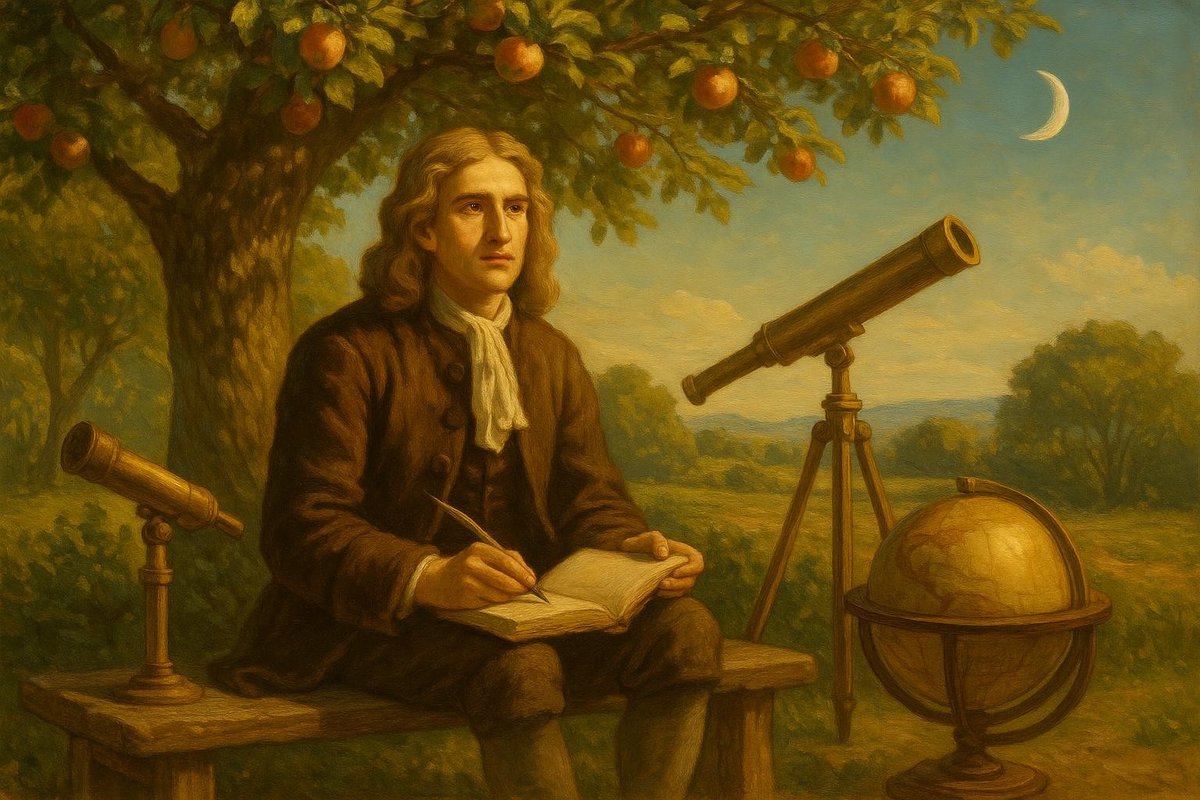
Unpacking the Falling Apple Mystery
Have you ever wondered what really made that apple so special? The story of Isaac Newton and the falling apple is legendary, but the truth isn’t as straightforward as it seems. While the apple famously sparked his thoughts on gravity, it was Newton’s broader curiosity about the universe that truly catalyzed his insights. Why did things fall, and why did the Moon stay in orbit?
Interestingly, before Newton, many believed in Aristotle’s idea that heavier objects fell faster. But Newton questioned these long-held beliefs. He was also influenced by Galileo, who had shown that objects fall at the same rate, regardless of weight.
- Misconception: Objects fall at different speeds depending on weight.
- Reality: All objects accelerate at the same rate due to gravity, barring air resistance.
In the 17th century, the cultural milieu was ripe for questioning and discovery. The Age of Enlightenment encouraged thinkers like Newton to challenge traditional ideas. Add to this the advent of more precise instruments for observation, and you have a fertile ground for genius to blossom.
Surprising Facts About Newton’s Curiosity
Many people believe Newton was struck by inspiration in an instant, but his path was much more incremental. Newton’s curiosity was piqued by celestial phenomena and the mechanics of orbits—why, for instance, did planets not simply fall into the Sun?
He realized that the same force that pulled the apple was also acting on the Moon. This was revolutionary.
- Newton’s insight: The force of gravity diminishes with the square of the distance.
- Debate: Could the same force explain both terrestrial and celestial movements?
According to accounts, Newton once said, “If I have seen further, it is by standing on the shoulders of giants.” His respect for past thinkers like Kepler and Galileo was clear, and he knew that understanding the universe required more than just intuition—it demanded evidence.
What Science Says About Universal Gravitation
So, what made Newton’s law of universal gravitation such a game-changer? It was the first to mathematically describe how every particle of matter in the universe attracts every other particle.
Newton’s formula, F = G(m1*m2)/r², became a cornerstone of classical physics.
- Misconception: Gravity only affects objects on Earth.
- Reality: Gravity is a universal force acting throughout the cosmos.
This groundbreaking work explained why planets moved in elliptical orbits, as Kepler had observed, and how tides could be influenced by celestial bodies like the Moon and Sun. Newton essentially turned the celestial dance into a series of predictable steps.
What Newton’s Discovery Means for Us
Today, Newton’s insights are fundamental to everything from space travel to understanding black holes. Without his laws, our ability to navigate the stars would be severely limited.
His work has inspired countless scientists to explore even deeper, questioning the very fabric of spacetime itself.
As time goes on, Newton’s legacy reminds us that curiosity is a powerful tool. It drives us to ask questions that seem simple but lead to profound truths.
In a world where knowledge is at our fingertips, it’s vital to keep exploring and questioning, much like Newton did centuries ago.
Fuel Someone Else’s Curiosity
If this story of curiosity and discovery has sparked your interest, why not share it with a friend? Discussing these ideas not only deepens understanding but can also ignite someone else’s journey of exploration. Let’s keep the spirit of curiosity alive and inspire those around us to look up and wonder.

Leave a Reply